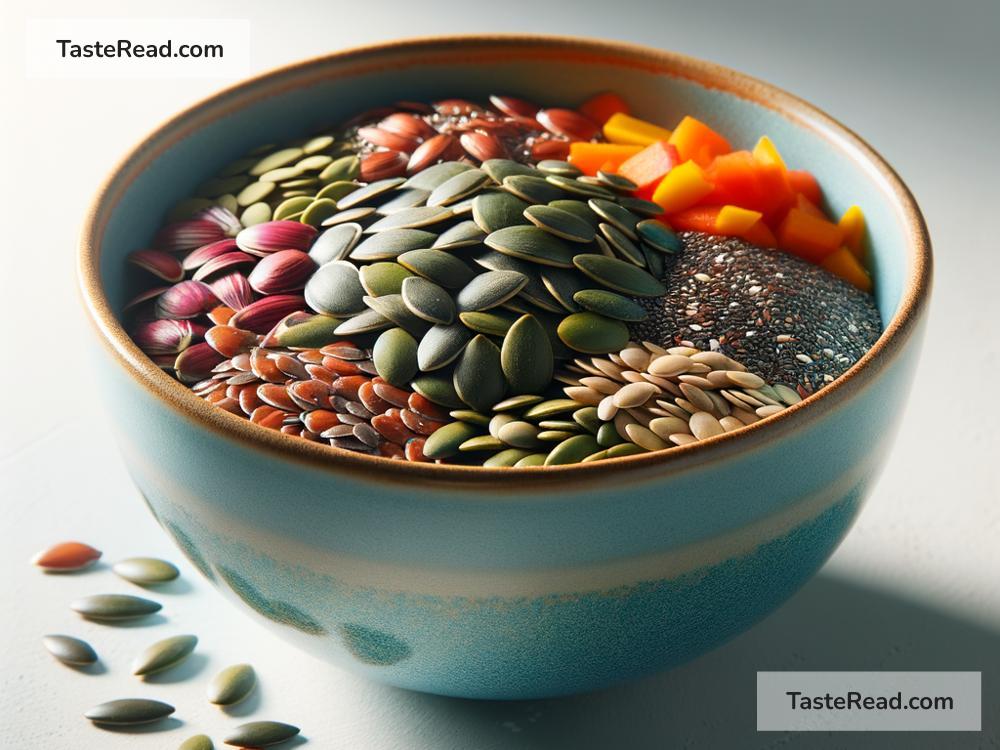The Rise of the Seed-Based Diet: A Wellness Revolution
In recent years, a new trend has been quietly but steadily gaining ground in the health and wellness community. It’s not a high-tech gadget nor a complex workout routine—it’s the humble seed. Yes, you read that right. Seeds, those tiny kernels we often overlook, are now making a big splash in the world of nutrition, with more and more wellness enthusiasts singing their praises. So, why is the seed-based diet becoming all the rage? Let’s dig into the reasons behind its soaring popularity.
A Pocket-Sized Nutrient Powerhouse
One of the primary reasons behind the seed-based diet’s popularity is the incredible nutritional value that seeds pack. Despite their small size, seeds are bursting with a range of essential nutrients, including but not limited to protein, healthy fats, vitamins, and minerals. For instance, chia seeds are rich in omega-3 fatty acids, which are crucial for brain health, while pumpkin seeds are a great source of magnesium, a mineral many of us lack.
Incorporating a variety of seeds into one’s diet can ensure a broad spectrum of these nutrients, which can support overall health and well-being. This nutrient density is particularly appealing for those looking to get the most bang for their buck nutrition-wise.
Versatility at Its Best
Another reason for the seed-based diet’s popularity is its incredible versatility. Seeds can be effortlessly incorporated into all kinds of meals, making it an easy diet to adopt. Sprinkle some flaxseeds on your morning oatmeal, add sunflower seeds to your lunchtime salad, or blend sesame seeds into your evening smoothie – the possibilities are endless. This versatility also makes the diet a perfect fit for people with various dietary preferences, including vegetarians, vegans, and those with food sensitivities or allergies.
Sustainability – Good for You, Good for the Planet
In the age of environmental consciousness, sustainability is a significant factor many consider when choosing what to eat. Here, seeds score high marks. As a food source, seeds require relatively fewer resources to produce compared to animal-based products, making them a more sustainable choice. By adopting a seed-based diet, individuals can contribute to a more sustainable food system, which appeals to the environmentally minded wellness enthusiast.
Weight Management and Digestive Health
Seeds are also gaining popularity for their potential benefits in weight management and digestive health. Being high in fiber, seeds can help promote feelings of fullness, reducing overall calorie intake. This, coupled with their nutritional profile, makes them an excellent addition to weight management diets. Moreover, the fiber-rich nature of seeds can aid digestion and prevent constipation, making them beneficial for gut health.
Ancient Wisdom, Modern Science
The seed-based diet is not entirely new. Many ancient cultures have long recognized seeds as vital food sources. However, what’s driving their resurgence today is the backing of modern science. Research continues to unveil the health benefits associated with various seeds, from reducing inflammation to lowering the risk of certain diseases. This merging of ancient wisdom with contemporary scientific understanding has played a crucial role in propelling the seed-based diet into the spotlight among wellness enthusiasts.
Easier Access and Innovation
Lastly, the increased availability and innovation in seed-based products have contributed to the diet’s popularity. From supermarkets to health food stores, seeds and seed-based products are now more accessible than ever. Additionally, food manufacturers are getting creative, offering a wide range of seed-based snacks, bars, butters, and more, catering to the growing demand. This ease of access, combined with the novelty of these products, has made the seed-based diet an attractive option for many.
Conclusion
The seed-based diet is captivating the hearts and plates of wellness enthusiasts for good reasons. Its unparalleled nutritional profile, versatility, sustainability, benefits for weight and digestive health, and the fusion of ancient wisdom with modern science, all contribute to its growing appeal. Additionally, the increased accessibility and innovation in seed-based products are making it easier for individuals to adopt this wholesome diet.
Whether you’re a seasoned wellness enthusiast or someone just starting their health journey, incorporating seeds into your diet can be a simple yet effective step towards better health. So, the next time you’re pondering over your meal choices, remember that sometimes, the smallest changes—like adding seeds—can have the most significant impact.


